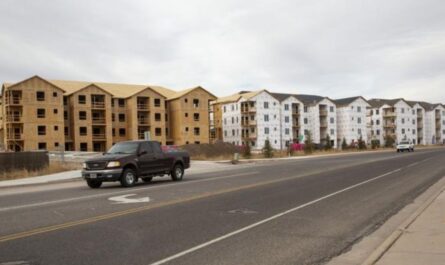Little Rock, Arkansas – Renters across Arkansas should prepare for 2025 knowing that the state remains one of the most landlord-friendly housing markets in the country. Unlike states such as California or New York, Arkansas has no statewide rent control laws. This means landlords can raise rent by any amount once a lease term ends, as long as they follow the state’s notice requirements.
While this gives property owners broad flexibility to set rents at market rates, Arkansas law still enforces procedural protections to ensure tenants are treated fairly. Understanding these rules is crucial for anyone renting a home in the state.
No Rent Control or Caps in Arkansas
Arkansas law does not impose rent caps, and landlords are free to set new rates after a lease expires. According to the Arkansas Legal Services Partnership, the state provides landlords greater freedom compared to many others.
- No maximum rent increase: Landlords can raise rent by 5%, 20%, or even higher, depending on market demand.
- Market-driven pricing: Rental prices are primarily determined by local housing demand and availability.
- Applies statewide: Arkansas has no city-level rent control ordinances, unlike some states where local governments regulate rent.
Required Notice for Rent Increases
Even though landlords have discretion on how much they can raise rent, they must provide advance written notice before enforcing the new rental rate.
- Month-to-month leases: A landlord must give at least 30 days’ written notice.
- Week-to-week leases: A minimum of 7 days’ written notice is required.
- Fixed-term leases: Rent cannot be increased until the lease ends, unless the contract includes a clause allowing mid-lease increases.
Importantly, verbal notices are not valid in Arkansas. Tenants should always request written documentation of any rent change. Failure by the landlord to provide proper notice makes the increase legally unenforceable.
Rent Increases During a Fixed-Term Lease
According to Huron Insider, For renters with a fixed-term lease (e.g., 12 months), landlords typically cannot increase rent until the lease ends. Exceptions exist only if the lease agreement explicitly allows mid-term increases.
This means that if your contract does not include such a clause, you can challenge sudden mid-lease rent hikes as invalid. When the lease expires, however, the landlord is free to offer renewal at a new rental rate.
Protections Against Illegal Rent Hikes
Although Arkansas law heavily favors landlords, tenants are not without protections.
- No discrimination: Landlords cannot raise rent based on race, religion, gender, disability, or family status, in compliance with the Fair Housing Act.
- No retaliation: A landlord cannot increase rent to punish a tenant for reporting code violations, requesting repairs, or exercising their legal rights. Retaliatory rent increases are considered unlawful and can be challenged in court.
These protections are essential in preventing abuse, ensuring that landlords do not use rent increases as a tool of harassment or intimidation.
Read Also: Understanding the Colorado Extra Standard Deduction for Seniors Over 65
Tenant Strategies When Facing Rent Increases
When confronted with a rent hike, Arkansas tenants should take several proactive steps:
- Review your lease agreement – Confirm whether rent increases are allowed mid-term.
- Check notice compliance – Ensure you’ve received proper written notice within the legal time frame.
- Negotiate with your landlord – Some property owners may agree to smaller increases, especially if you are a reliable, long-term tenant.
- Explore other housing options – Since there are no rent caps, moving may be the only solution if the increase is unaffordable.
- Seek legal help if necessary – Organizations like Arkansas Legal Aid can guide tenants facing questionable or retaliatory rent hikes.
The Bottom Line for Arkansas Tenants in 2025
Arkansas remains a landlord-friendly state with no rent control laws, meaning landlords can increase rent by any amount once a lease ends. However, they must provide written notice (30 days for month-to-month, 7 days for week-to-week) and cannot raise rent in discriminatory or retaliatory ways.
For renters, the key to navigating these laws is awareness. By understanding notice requirements, lease terms, and legal protections, tenants can better prepare for rent increases and make informed housing decisions in 2025.
Have you faced a sudden rent increase in Arkansas? Share your experience in the comments at ibwhsmag.com.


 by
by 

